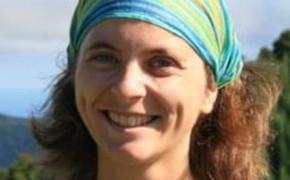The Utebo’s social wardrobe recycle clothes donated by the town’s citizens and businesses and offers them to families in need.
Utebo wardrobe is a citizen’s initiative and receives the support of the city council. The social wardrobe is managed by volunteers supervised by the municipal social service’s workers, who evaluate the families' need for clothing and provide a voucher with a date and time for collecting the wardrobe. People that want to receive help are inscribed to an electronic registration system, used to organize clothing donations.
Clothes are collected in the Utebo Polyfunctional Centre that serves as a storage and treatment area. The facility, with 317m2, is in a municipal building and has a reception area, a changing room, a meeting room, an area for storage and a laundry.
Clothes, shoes, blankets, bedding, underwear, bags, and suitcases are received at the collection centre and quarantined for 7 days. The volunteers separate the clothes into wearable adult and child sizes, and if necessary, they are cleaned and repaired. The non-repairable textiles are donated to an NGO that works in textile recycling and social inclusion programmes, which transforms unusable textiles into raw fabrics.
The city council informs about the initiative through social media, posters and their website, to attract both donors and users.
Resources needed
20 volunteers take care of clothes reception, treatment, and delivery, dedicating 10h/week. While 4 municipal social workers assess a family’s needs for clothing, as part of their job, with 2 h/week (average annual salary of 22.000 €). No other costs as the facility are in a municipal building.
Evidence of success
In 2019, this project helped almost 600 families find the clothes they needed. The number increased in 2020, due to the crisis caused by the COVID-19 and is expected to grow also in 2021. Yearly, around 500 kgs of clothing are donated by Utebo citizens, only 7% is wasted and goes to the landfill.
Another success is the involvement of volunteers that carry out all the tasks, being a good example of citizen’s involvement in a circular economy.
Difficulties encountered
Difficulties come from managing and treating the high volume of clothes that are received, which is very time consuming and a heavy task for the volunteers. Moreover, most clothes need repairing and fixing of some kind. Thus, some of the volunteers need to have some experience in repairing clothes.
Potential for learning or transfer
This initiative helps to prevent textile waste, which is high due to fast fashion and mass consumption. Textile recycling is a growing trend, the social wardrobe is an example of how to promote repairing and recovering textiles through collaboration among citizens and the public sector.
Textile waste is a common and global problem. This initiative can be transferred to any other city in Spain and Europe; as it is done with volunteers’ work, the costs are not high.
This activity has two very satisfactory advantages, the first is to help people at risk of exclusion or with low income, the second is to avoid generating textile waste.
Please login to see the expert opinion of this good practice.
Tags: Circular economy, Reuse centre, Textile








